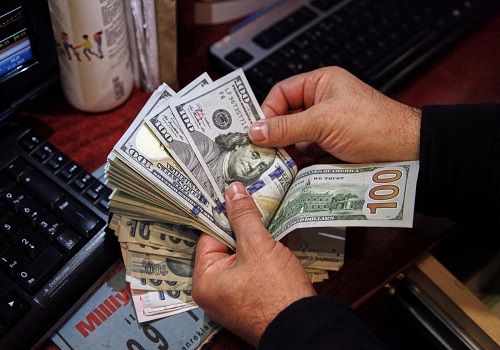Dollar finds its footing; Turkish lira holds its gains

Follow us Now on Telegram ! Get daily 10 - 12 important updates on Business, Finance and Investment. Join our Telegram Channel
LONDON - The dollar rose on Wednesday while the euro and riskier currencies like the Australian dollar dipped as traders prepared for more volatility and the impact of rising cases of the COVID-19 variant Omicron.
Turkey's lira steadied and held to its recent gains amid a rollercoaster ride for the currency this week.
Foreign exchange moves were largely small, however, with trading volumes thinner ahead of the holiday season.
The Australian dollar lost as much as 0.4% to $0.7121 and the New Zealand dollar as much as $0.6742, having both advanced sharply the day before alongside oil and global shares. [MKTS/GLOB]
With small declines in the pound - also a beneficiary of Tuesday's rally - and the euro, the dollar index snapped two days of losses and edged a little higher to 96.551, though it was still well within its recent ranges.
The weeks on either side of Christmas are typically low in volatility for currencies and other asset classes, analysts at ING said, though "this year some seasonal tendencies will be mixed with the Omicron variant threatening to force new restrictions and markets still processing a week full of key central bank decisions."
Omicron continues to keep traders on edge and infections are multiplying across Europe, the United States and Asia, causing countries across the globe to consider new curbs on movement and reimpose quarantine periods for incoming visitors.
But a Bloomberg report that the U.S. Food and Drug Administration is set to authorise COVID-19 treatment pills from both Pfizer Inc and Merck as early as Wednesday may have helped the mood.
In emerging market currencies, traders were bracing for another day of volatility for Turkey's lira, which closed up 6% on Tuesday, having been down as much as 8.6% and up as much as 18.5%.
The lira was last down around 1.4% at 12.57 per dollar but holding most of its gains after the currency charged back from record lows due to President Tayyip Erdogan's new steps to guard Turks' savings against such volatility.
"The government’s intention is help to slow the pace of dollarization in the Turkish economy and of the lira’s decline. The policy action has been described as like as rate hike for retail deposits. How ever, it will transfer foreign currency risks onto the government’s balance sheet," said Lee Hardman, an analyst at MUFG.
He added that the plans would be unlikely to "buy the government much time before the lira resumes it decline unless there is fundamental shift to tighter policy settings to restore stability."
























